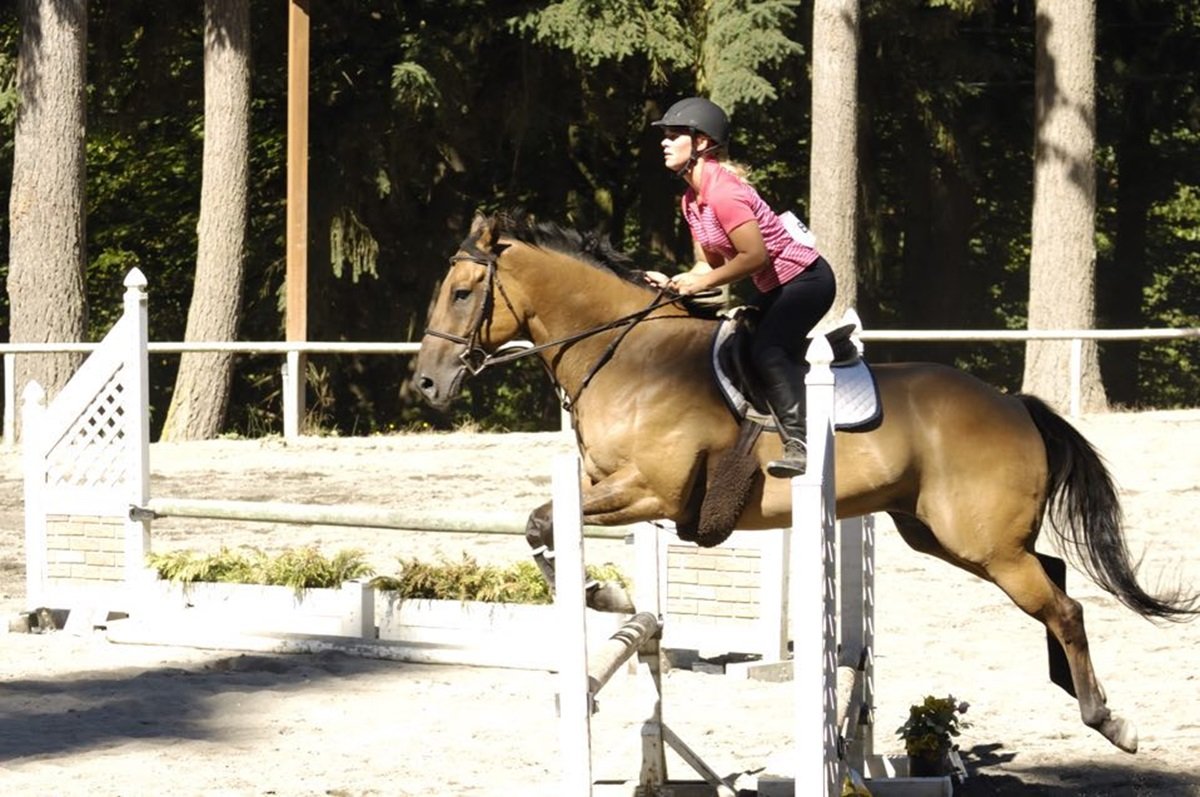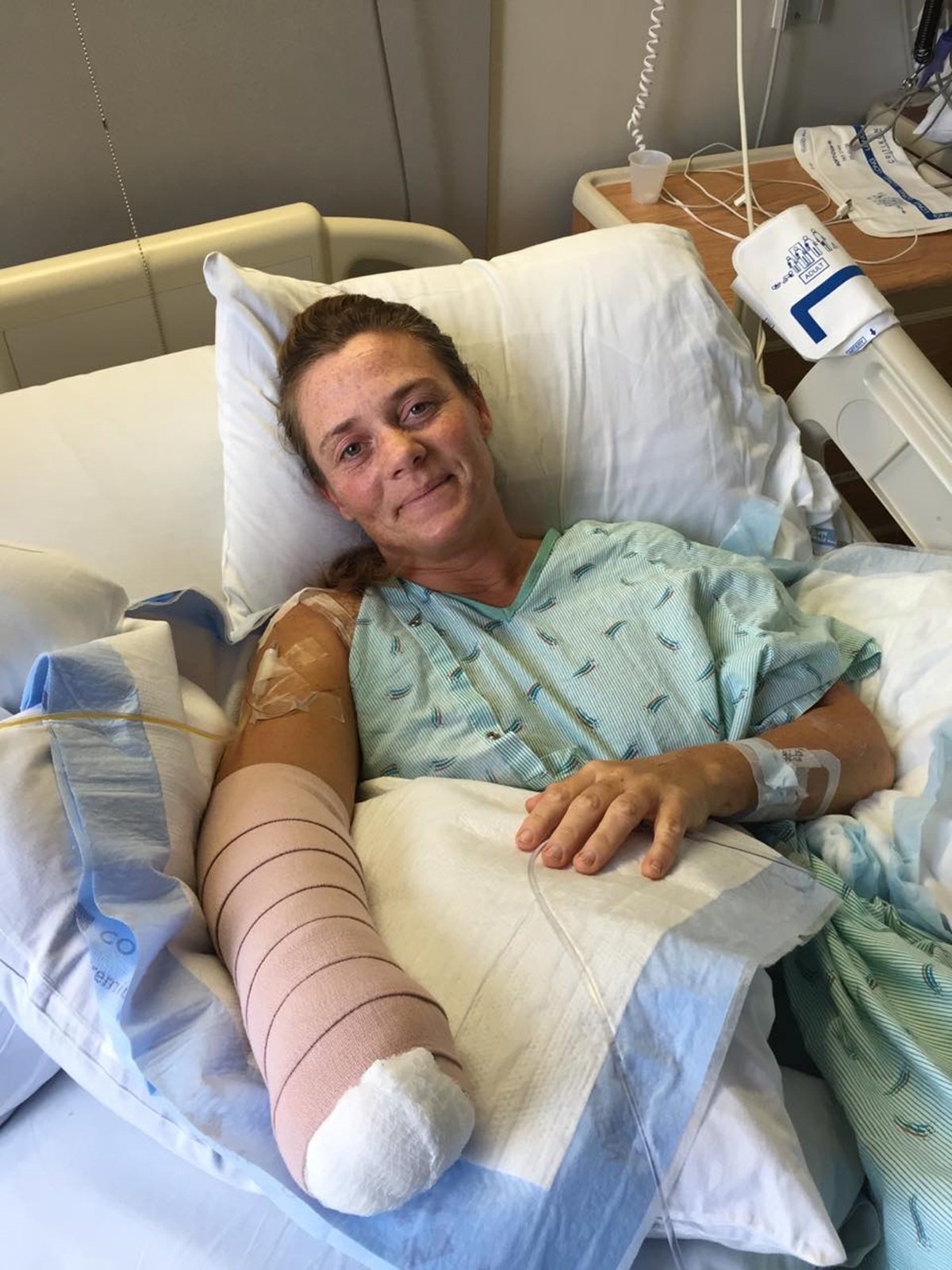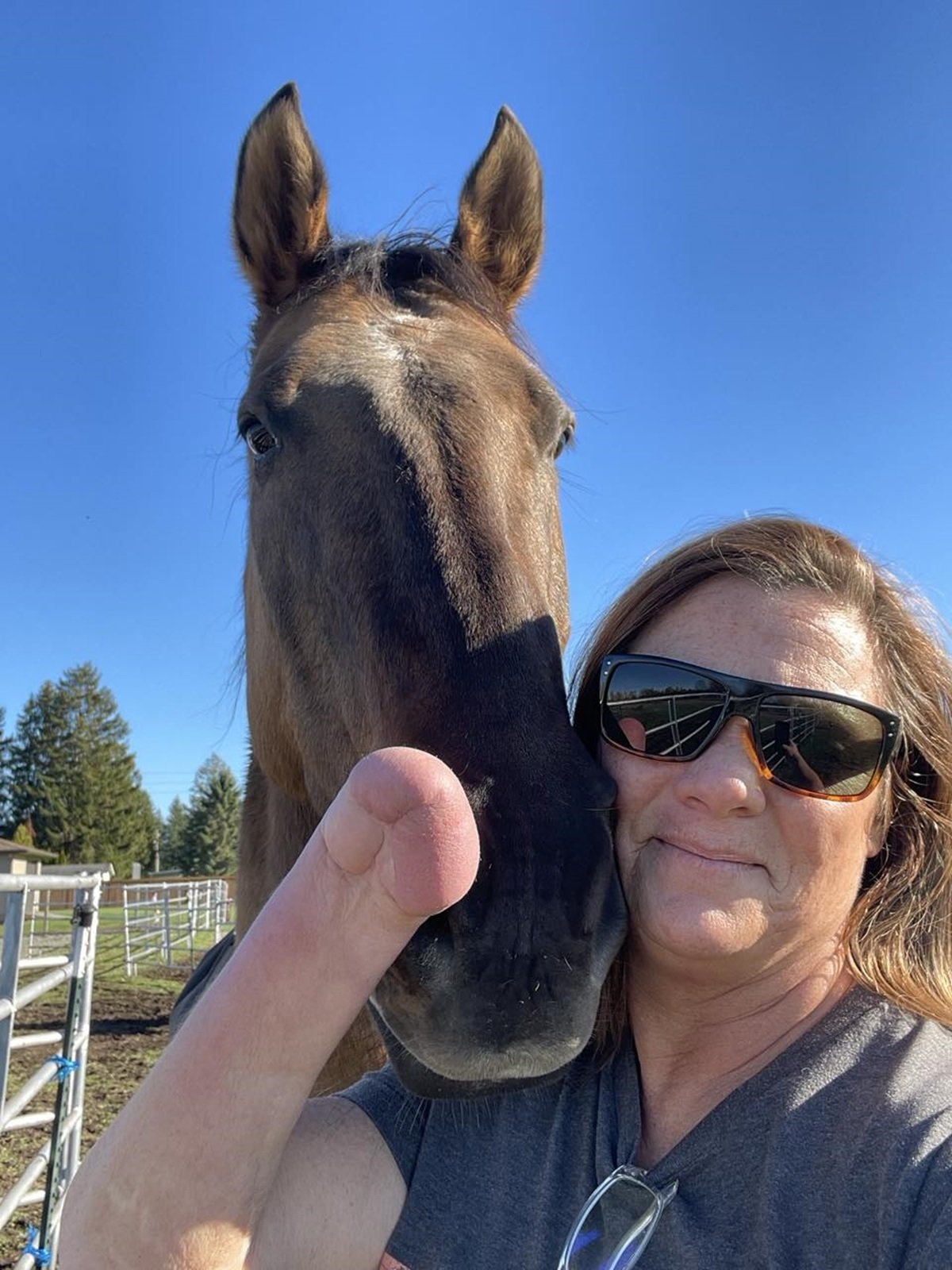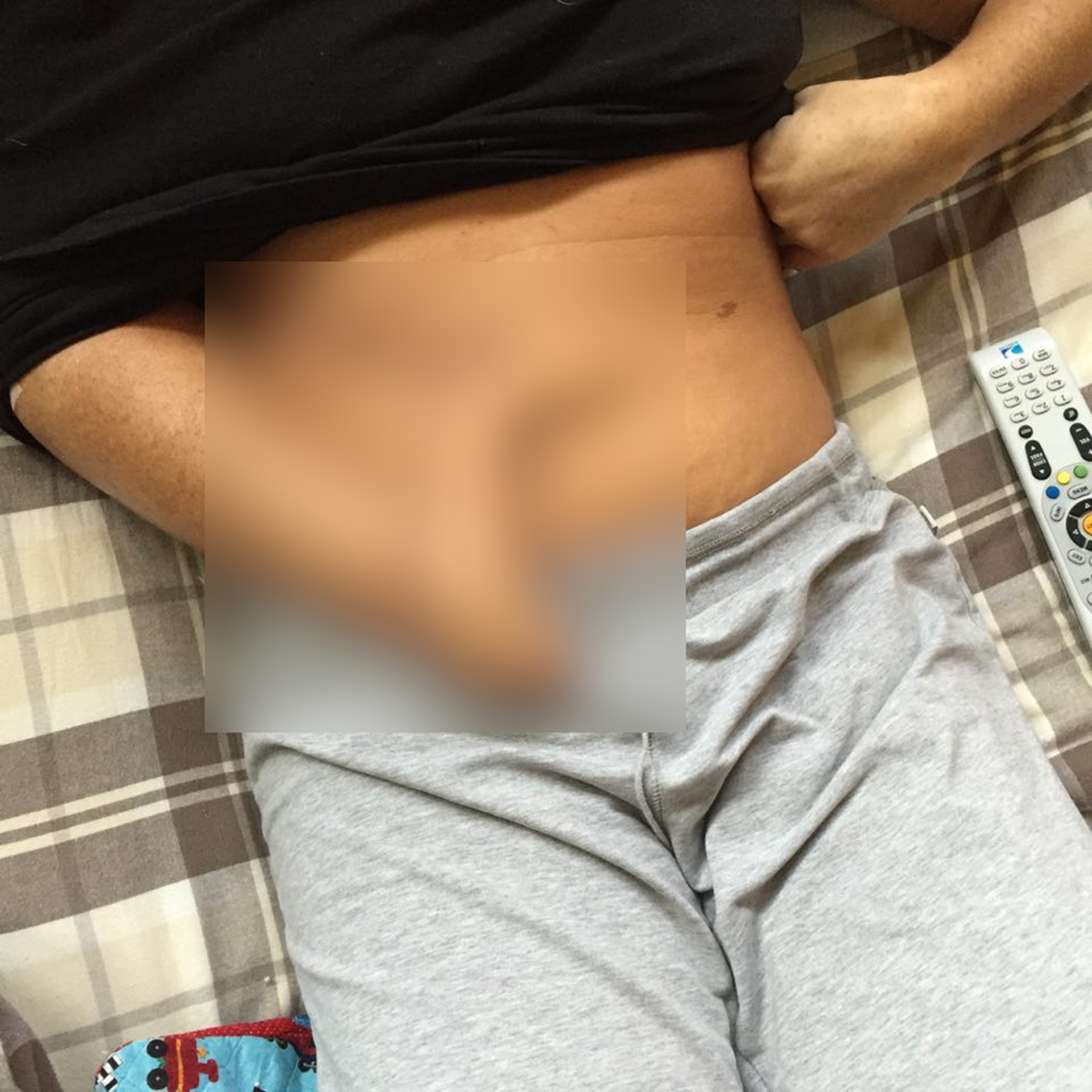When Kris Robinett's vet was running late for a routine appointment, she naturally attempted to get in touch. But sending a text while holding on to her horse would have life-changing consequences.
"I still have a hard time believing it was me that encountered the incident," Robinett, from Enumclaw, Washington, told Newsweek. Terrifyingly, the mother of two was still tethered to the fifteen-hand horse, Owen, when he galloped off—taking her with him.
Except for the veterinarian's visit to administer Owen an injection for arthritis, that fateful day in 2015 was typical.

"I wrapped Owen's lead around my right wrist, and I started to text the vet to reschedule the appointment. But before I knew it, I was on the ground. I guess I must have tripped over something," she said.
Robinett never got the chance to stand up. Owen became startled and began to run, a common fear reaction in horses. According to Redwings, the largest horse welfare charity in the United Kingdom, they can become spooked by anything from a loud noise to movement in a nearby hedge.
"Owen looked at me, and I instantly knew what he was going to do. I was shouting 'whoa,' but he took off," Robinett said. "He tended to run if someone fell off him, whereas some horses would stand still immediately. He dragged me through a drainage ditch, and then I blacked out. I woke up in the pasture.

"I remember shouting for help and then feeling myself fade away. I was losing consciousness, but I was not ready to die. I thought to myself, 'I am not ready to go. This isn't my time,' then somehow I managed to get myself up."
Robinett automatically assumed her whole arm was missing.
"I couldn't comprehend that my hand was missing; all I could see was blood and something bright white, which was my bone," she said.
Miraculously, Robinett mustered up the energy to walk to her house, where her parents also lived. She recalls walking past Owen, then 14 years old, and reassuring him that everything was ok.
"I knew he was scared," she said.
Robinett collapsed as she reached her front porch. Her mother immediately dialed 911.
"I woke up in a trauma hospital in Seattle, and they were putting stitches in my head in the emergency room," she said. "Shortly after, the surgeon said, 'We are going to try and reattach your hand.' I asked what about my arm, and they said the arm is fine, but your hand is missing."
Robinett discovered she had been degloved, a type of trauma injury where the underlying muscle, connective tissue or bone is torn away from the top layers of skin and tissue. Her hand was found 30 feet away from where the incident occurred by her sister and medics.
Medics suggested a surgical procedure that involves reattaching a finger, hand, or arm. But there was a chance that the hand may not function like it used to.

"My thumb, little and ring finger had a bone to the second knuckle. The doctor wanted to try and attach my hand, but it wasn't a clean cut and wouldn't be easy. I had torn tendons and ligaments and a broken humerus," Robinett said. "The doctor explained there are a lot of surgeries involved, and it may not work, so I decided against the reattachment."
Robinett said she was "covered in filth," which gave surgeons no choice but to remove more of her hand.
"They had to chop even more of my hand off for the first surgery, and 24 hours later, they cut more off as an infection was eating away at my hand," she said. "I was scared in case I lost my whole arm."

Robinett spent two weeks in the hospital after the accident on March 24, 2015.
She was discharged with her hand surgically sewn into her abdomen in a bid to form a new blood supply. The procedure, called a pedicled abdominal flap, dates back to the 18th and 19th centuries. During the First and Second World Wars, physicians also conducted this procedure to treat soldiers.
"I was so grateful to be alive and home with my kids and Owen," Robinett said. "I was very emotional when I saw him for the first time. I couldn't stop saying sorry for scaring him.
"I didn't blame him, and I still don't. I still have him today. He is now 22 years old."
However, her homestay was short-lived as she suffered from an allergic reaction to the medication after seven days. After three weeks, her limb was removed from her stomach, and she went to physical therapy appointments for one month.
But her living nightmare was far from over as the skin on her hand started to turn black.
"The tissue was dead, so I had to have more of my hand amputated," she explained.
Robinett ultimately had her hand removed through 16 surgeries. Despite the dramatic change in her life, she remained positive.
Eight years later, Robinett, now 51, shared her story for the first time on TikTok under the handle @kris.robinett. The video posted on October 20 has racked up 920,500 views.

During the clip, she says: "I don't regret getting into horses and I can't imagine my life without them."
She told Newsweek: "The incident made me realize that life is a gift."
Robinett admits it has been hard to adjust, but she has always believed in herself and found new ways to live independently.
"Life is different, but I am alive and that is all that matters," she said. "My main focus while recovering was raising my kids. I had to learn to write with my left hand, but thank goodness for technology and that we don't handwrite often nowadays. My handwriting over the past eight years has improved. It used to be a struggle.
"I truly believe that expressing gratitude for everything I have helped the recovery process."
Is there a health issue that's worrying you? Let us know via health@newsweek.com. We can ask experts for advice, and your story could be featured on Newsweek.
Uncommon Knowledge
Newsweek is committed to challenging conventional wisdom and finding connections in the search for common ground.
Newsweek is committed to challenging conventional wisdom and finding connections in the search for common ground.
About the writer
Lucy Notarantonio is Newsweek's Senior Lifestyle and Trends Reporter, based in Birmingham, UK. Her focus is trending stories and human ... Read more





